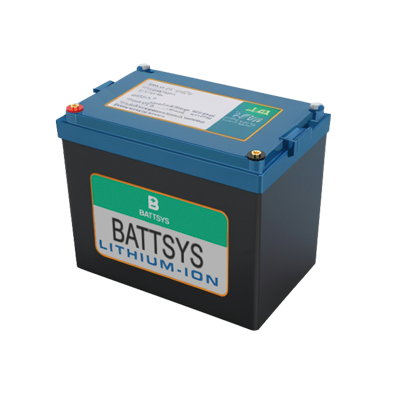Introduction to the application of
Marine Lithium Battery.
The application of lithium iron phosphate batteries in the shipbuilding market is gradually improving, and battery companies are rushing to expand their presence. Electric ships need to carry a large number of batteries, and there are also high requirements for the discharge rate, recyclability, and cost of the batteries. The lithium iron phosphate battery applied to electric ships has obvious advantages in safety, energy density, cycle performance, and other aspects.
The electrification of ships has become an inevitable trend in future development. Electric ships can significantly reduce the emissions of pollutants and gases from ships, and some can even achieve zero emissions. With the continuous improvement of international ship emission regulations and the continuous maturity of ship power batteries and hybrid technology, the market recognition of electric ships is constantly increasing, becoming a key focus of future development in the shipbuilding industry.

In addition, in terms of operating costs, electric ships have significantly lower operating costs than diesel and LNG fueled ships. Due to the simple structure, fewer rotating parts, and reliable operation of electric ships, maintenance costs are relatively low.
At present, the development of electric boats in China is slightly later than that in foreign countries, but the development speed is fast and the application of ship types is wide. Mainly used in cities along the river and coastal areas such as ferries, sightseeing boats, inland cargo ships, and port tugboat markets. Application ship types include passenger ships, ferries, official ships, dry bulk carriers, etc.
The domestic companies that have entered the field of electric ships mainly include Yiwei Lithium Energy, Ningde Times, and Hefei Guoxuan High tech.
Electric ships need to carry a large number of batteries and require batteries to have high discharge rates in a short period of time, which will to some extent promote an increase in battery heat generation. The high temperature, cycling, and cost of batteries are particularly important. Compared to lead-acid batteries, lithium iron phosphate batteries have advantages in energy density and volume. With the increasing proportion of lithium iron phosphate batteries applied in the field of electric ships in the future, the price of products will show a downward trend.
If the penetration rate of lithium electrification in the lithium battery market for electric ships reaches 50%, it will drive a scale of over 90GWh in the lithium battery market. The current lithium batteries for electric ships use lithium iron phosphate series power batteries.
Based on safety and economy,
lithium iron phosphate batteries are suitable for electric ships in China. In recent years, power batteries and BMS battery management systems have developed rapidly, and many marine battery manufacturers have obtained recognition certificates from China Classification Society through experimental testing of their power battery products. And the charging and discharging rate reaches 20C, with good ship power handling.
